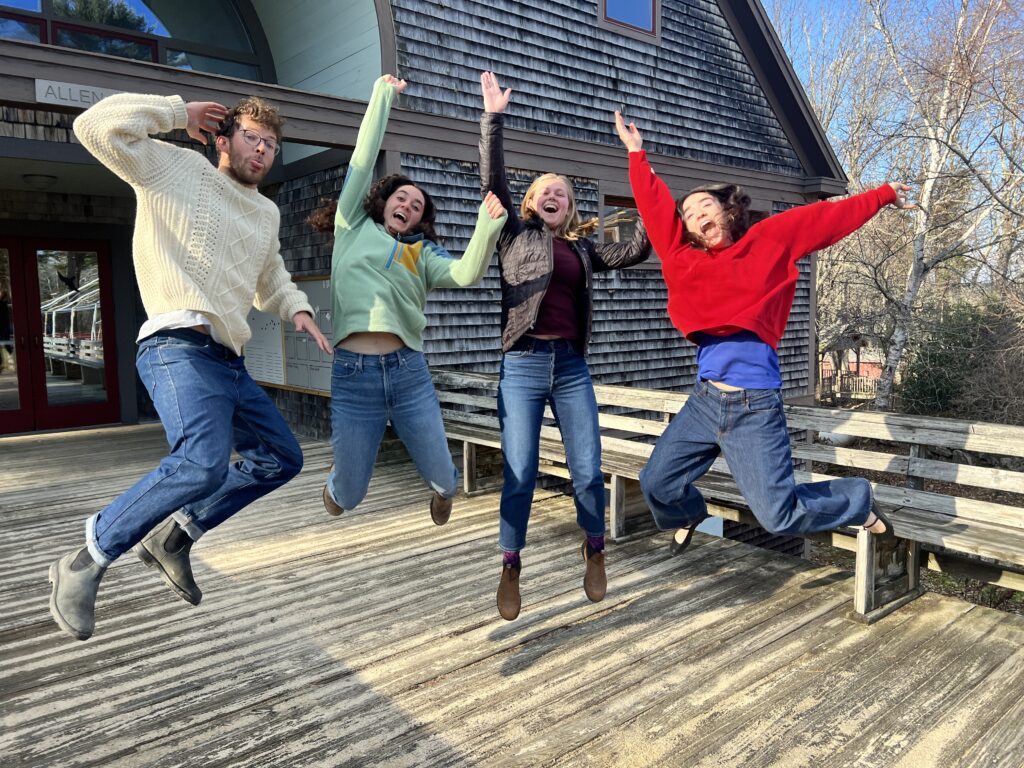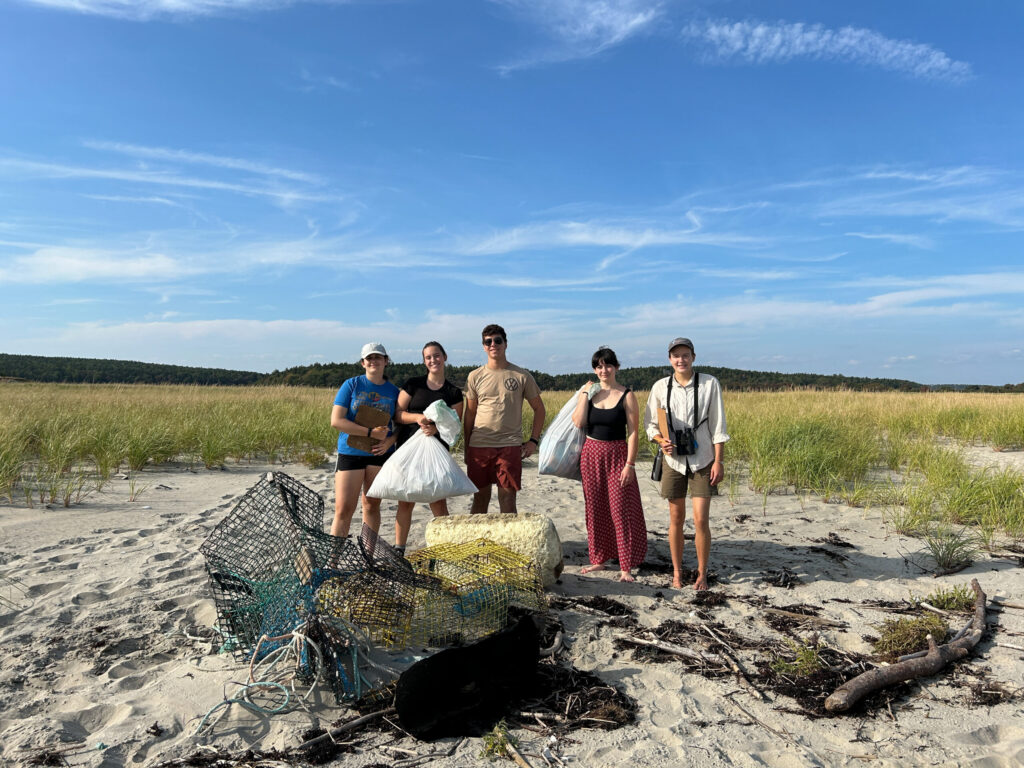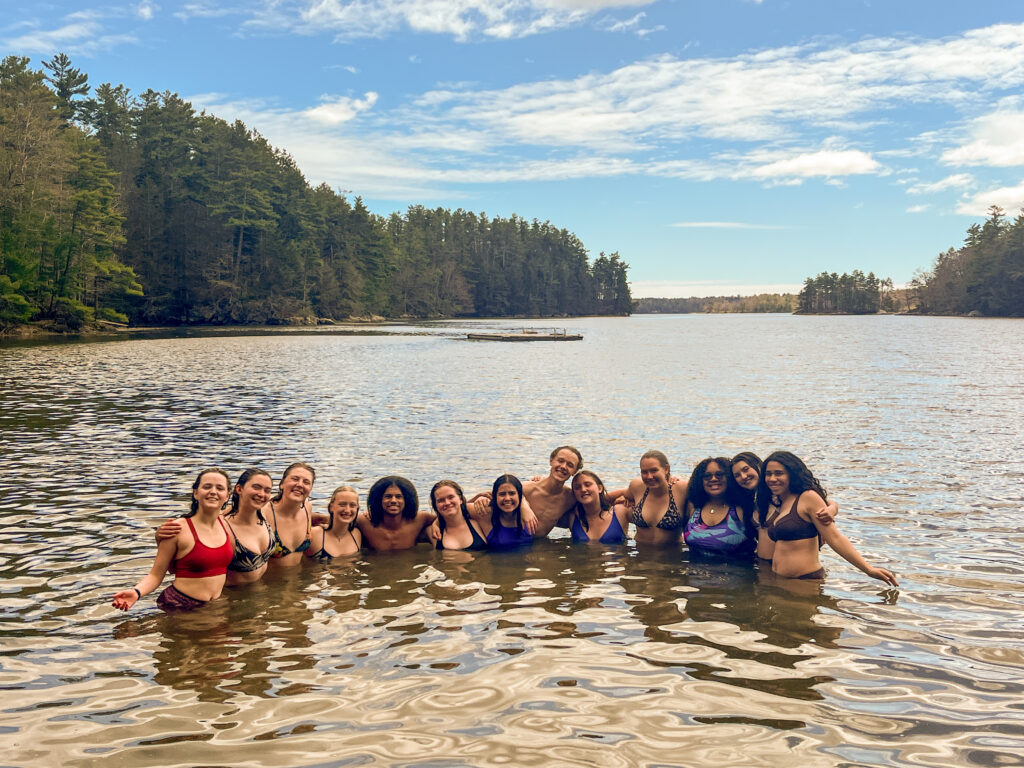(Left to right: Johnny Vallo, Isabelle Stewart, Brook Heston, Anna Solomon)
This week, we caught up with four faculty embarked on a unique journey- the pursuit of a Masters degree in Teacher Leadership through our fellowship program in association with Mt. Holyoke.
Each of our Fellows arrived from a unique academic and personal background, yet they have all converged at Chewonki to immerse themselves in our distinctive semester school environment.
Isabelle Stewart grew up on Cape Cod, Massachusetts. She attended Gettysburg College where she studied biology. Brook Heston hails from Vermont, went to Skidmore College, with a major in sociology and environmental studies with a minor in education.
Anna Solomon is from Newton, Massachusetts, and studied politics at Pitzer College. Johnny Vallo, originally from Kohler, Wisconsin, attended the University of Wisconsin-Madison where he majored in English, environmental studies, and geography.
Pursuing a Master’s in Teacher Leadership
A notable aspect of the fellowship program is the chance to earn a master’s degree in Teacher Leadership from Mount Holyoke. This benefit drew many of them to the position and the idea of being both a student and a teacher simultaneously intrigued them.
“I think part of the draw…was that there was the opportunity for a master’s degree. And that was a big part of the benefits for this job,” says Isabelle. “I think it’s been a cool and interesting experience to be both a teacher and a student at the same time.”
They find it refreshing to learn and grow academically while leading their own classes. Rather than stepping away from work to obtain an advanced degree, the Fellows appreciate “boots-on-the-ground” learning—gaining practical teaching experience while pursuing their studies, allowing them to refine their pedagogical methods in real time.
Reality Versus Expectation
Stepping into the Teaching Fellowship, many Fellows anticipated their role would revolve predominantly around classroom instruction. However, their time at Maine Coast Semester revealed a much broader scope. Beyond academics, the immersive nature of Chewonki’s community life became a defining aspect of their experience. From guiding students through challenges to sharing moments of joy and growth, the Fellows found themselves deeply integrated into the students’ lives.
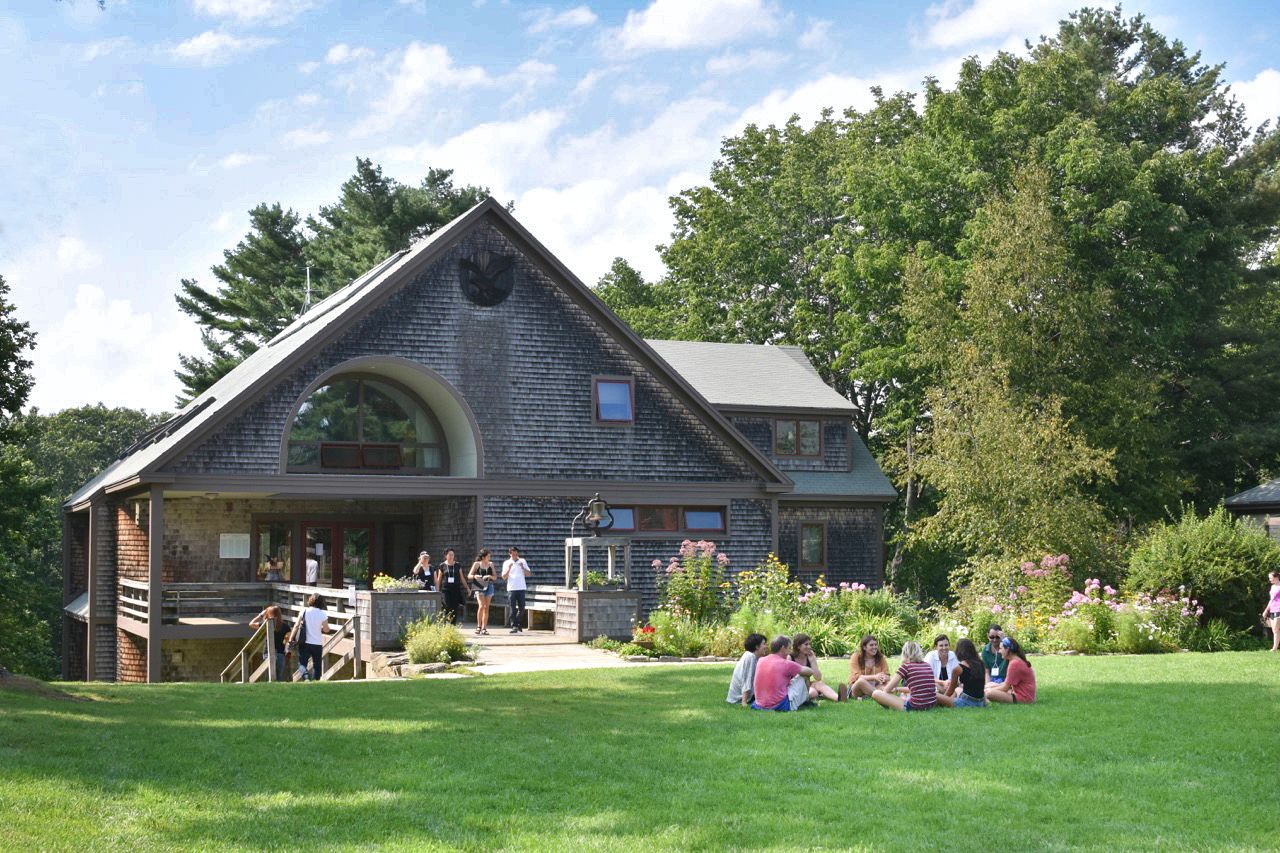
“The time in the classroom is really valuable,” reflects Anna Solomon, “but I don’t know if I fully appreciated just how much of our job was student life.” As advisors, mentors, and cabin parents, Fellows take on multifaceted roles that extend far beyond traditional teaching. Witnessing the personal growth of students as they navigate rigorous academics, adapt to a new environment, and build relationships is as rewarding as teaching itself.
Building Community and Advising Students
The Fellows noted that witnessing the personal growth of their advisees is one of the most rewarding parts of the job. Watching adolescents navigate the complexities of a new environment, challenging coursework, and life away from home is powerful.
For Brook Heston, the strong sense of community within the program stood out. “I knew it would be a hands-on experience,” she shares, “but I didn’t realize the community we cultivate with our students would be so strong.” From academic classes to outdoor adventures, every element of the program reinforces a holistic approach to education, where learning happens in both structured and spontaneous moments.
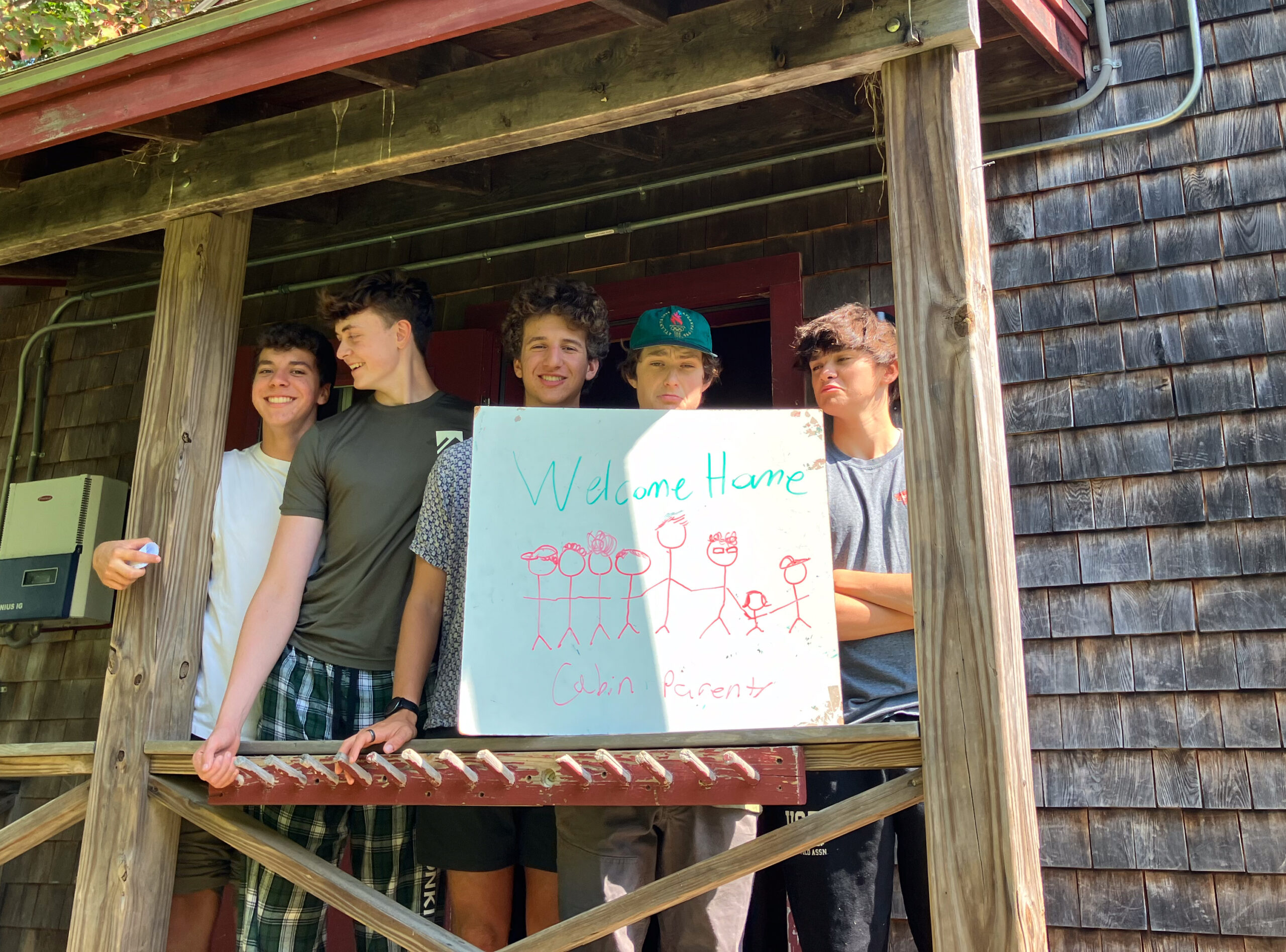
“I’ve loved being a cabin parent,” says Johnny Vallo. “My cabin is so much fun—they’re crazy and energetic, all over the place. But they’ve grown a lot, and I appreciate how much I’ve built a relationship with the students.” The role of a cabin parent goes beyond supervising; it’s about fostering a sense of belonging and providing a steady presence in the students’ lives.
Fellows often find that these bonds become transformative, not only for the students but for themselves as well. They witness students navigating the complexities of adolescence, discovering resilience, and building confidence in a supportive environment. These moments, whether small or significant, solidify the Fellows’ role as both educators and mentors, creating a profound impact that extends beyond the semester.
Beyond the Classroom: Hands-On, Place-based Learning
Central to the Maine Coast Semester’s teaching philosophy is experiential, place-based education. For many Fellows, this kind of outdoor, nature-oriented learning was entirely new. Instead of confining knowledge to textbooks and lecture halls, they take science classes down to the waterfront to identify intertidal organisms or read literature during backcountry kayaking trips. Discussions once reserved for desks and chalkboards now occur along forest trails, in the dishroom, or while preparing gear for outdoor excursions.
“It was definitely new for me,” says Johnny. “I feel much more excited to go to work. I feel like teaching at a traditional school, you’re cooped up inside with the windows closed and the kids are going crazy, but here we’re doing so much outside with the students.”
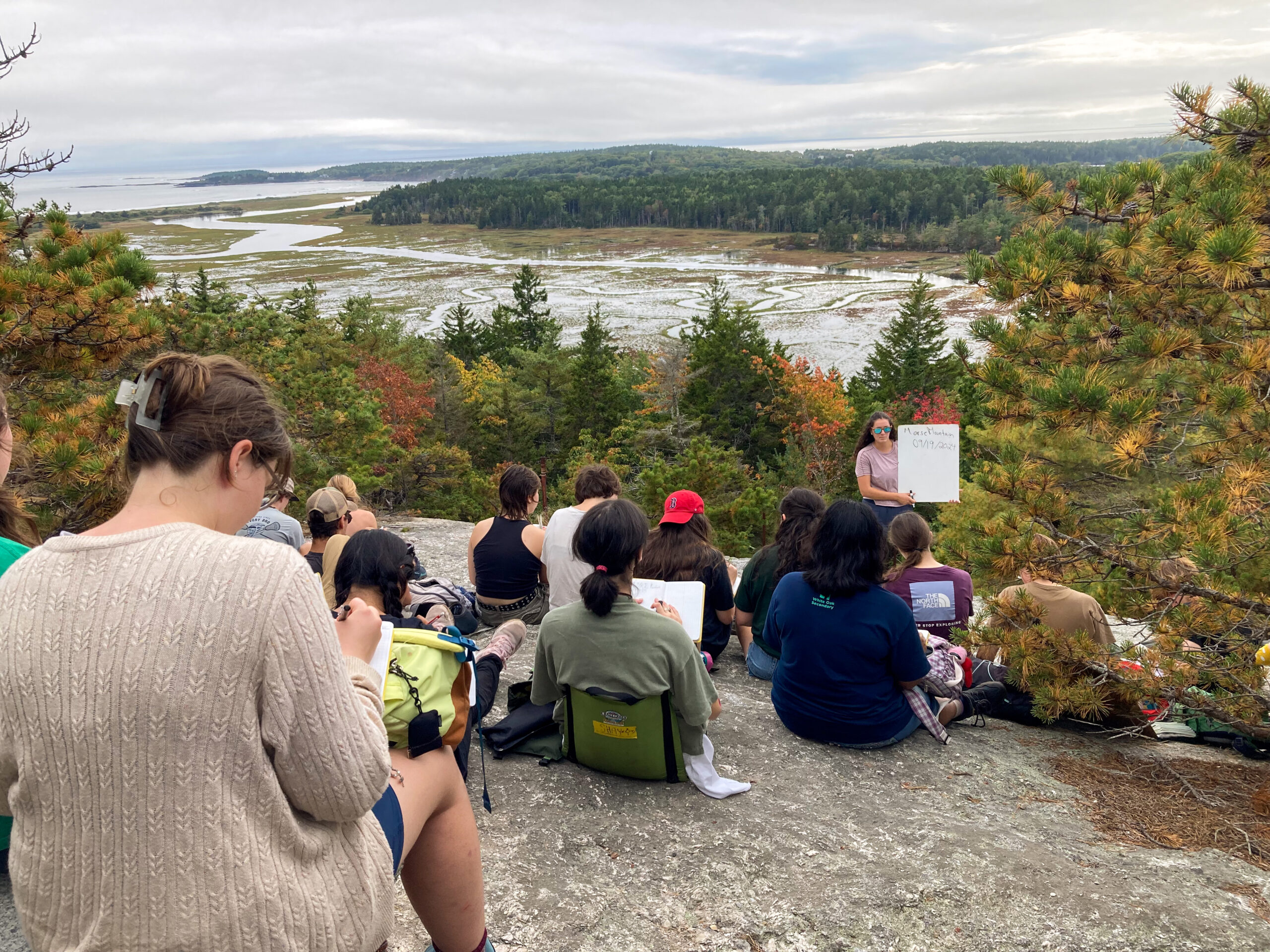
“I had a lot of experiential outdoor education opportunities in college,” reflects Isabelle. “And that’s partly what led me to be interested in the Fellowship position. “I think it’s super special for all of our classes, but in science we never have to talk about anything “abstractly” because we can just go outside and actually measure trees or talk about the history of a landscape or practice using site forensics to gather data, or just go down to our waterfront and find different intertidal organisms instead of just talking about them or looking at photos in a book. One of the things that’s really cool about our jobs is the amount of what you might call “classroom learning” that happens outside of the classroom!”
Anna also reflects on the extended nature of learning in this environment: “So when we’re outside with students on trips, or outdoor leadership experience, or work program, or chores we still get to be their teachers, and that’s where some of my favorite discussions happen. Talking about the books we’re reading in English class while kayaking on a backcountry trip. And I think knowing the students through the different forms of outdoor education and experiential learning that we do makes the classroom learning all the more fun and meaningful.”
The Importance of Supportive Community and Mentorship
As the Fellows reflected further, they emphasized how supportive their peers and mentors at Chewonki are. This support system makes an inherently challenging job more manageable. They highlight the sense of camaraderie in their shared living spaces—grading papers and working on graduate school assignments around the same table. Here, everyone is invested in one another’s growth. When difficulties arise in the classroom, they do not face them alone; instead, they lean on colleagues who readily offer ideas, encouragement, and understanding.
“It sounds a little cheesy, but I didn’t realize how much of a wonderful community it would be,” says Isabelle. “The four of us have a really awesome little community, and it is so much fun to all be working on grad school assignments, or grading around the same table in our house. I just appreciate it and think it’s a really special part of this job, not only because we get to see each other teach, but also discuss challenges we have in the classroom and get support from each other.”
“My relationship with my mentor-teacher, Jonathan, has been one of the best parts of the last year and a half,” says Anna. “I have someone to look up to as a teacher, and learn from as a teacher, but also a really close friend and role model. Being able to get to know him and get to know his family has just been really special. I have this other adult in my life who I can learn a lot from and feel supported by.”
Advice for Future Fellows
As the conversation wound down, the Fellows offered some candid advice for others considering the path to becoming a Teaching Fellow at Maine Coast Semester.
First and foremost: be prepared for an immersive experience. This isn’t a light commitment. Between full teaching days, graduate coursework, mentoring students, and participating in all aspects of community life, there are few moments that are not active and engaged. But the Fellows all agreed—if you are ready for the intensity and complexity of the role, it can truly be the best two years of your life.
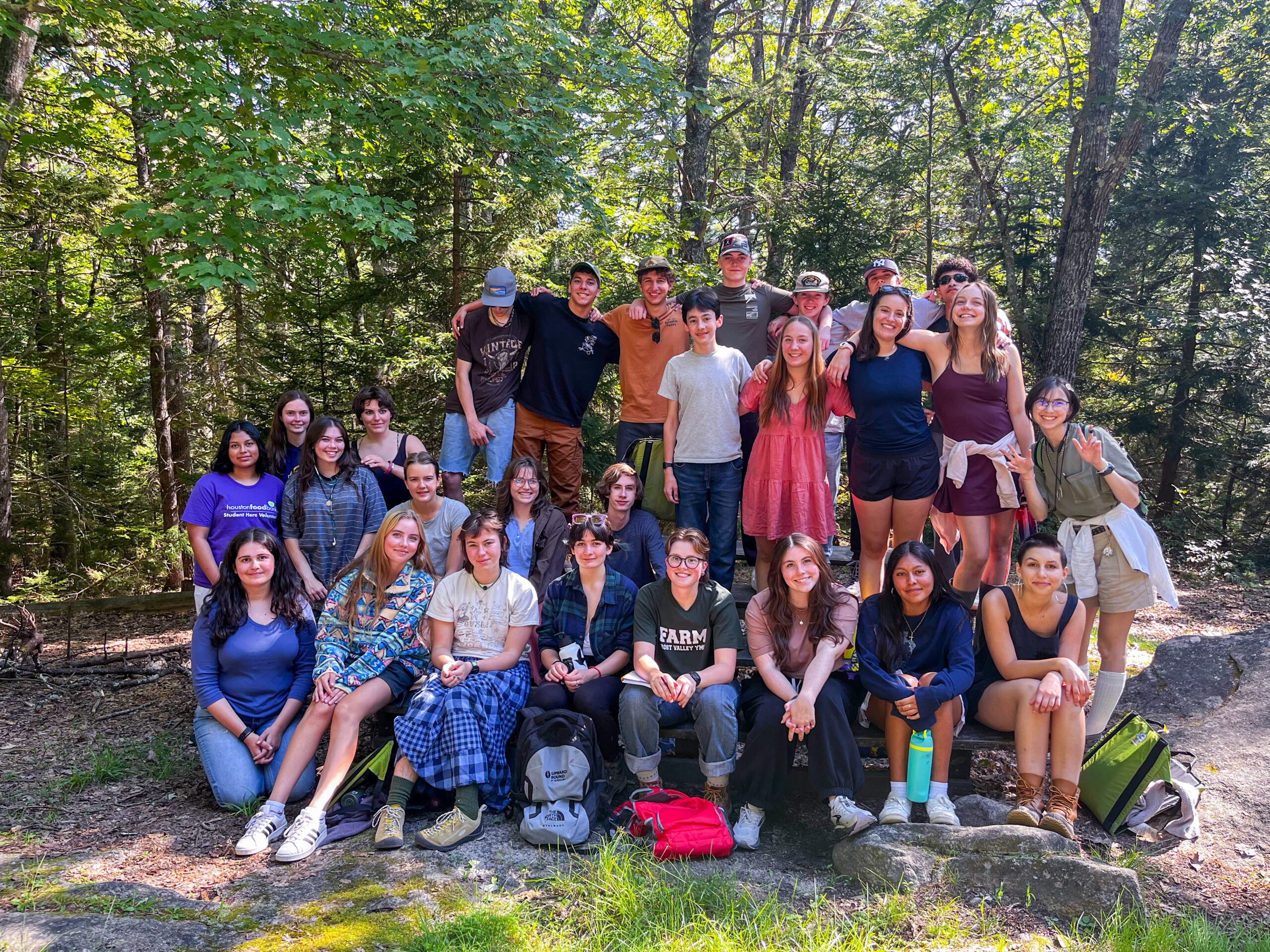
They encourage prospective Fellows to embrace the hard work, knowing it will be worth it in the end. Surrounded by a close-knit community, immersed in nature, and given the chance to grow both personally and professionally, Teaching Fellows find that each challenge comes with rewards. Students look up to them not just as teachers, but as true mentors—adults who can understand their world and help them with their academic and social growth. The lessons learned here—about teaching, learning, leadership, and connection—will shape who they are as educators and as human beings, long after their time at Chewonki comes to an end.
We are currently accepting applications for Teaching Fellows:
Chewonki Foundation is currently seeking Teaching Fellows who are actively pursuing teaching as their chosen career path, have a deep interest in working closely with teenagers, and are committed to working on a team that is dedicated to collaboration. The application deadline for next fall is January 15, 2025.

